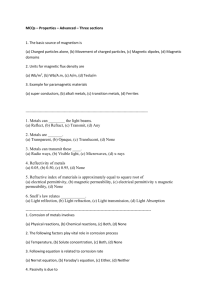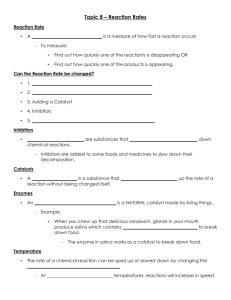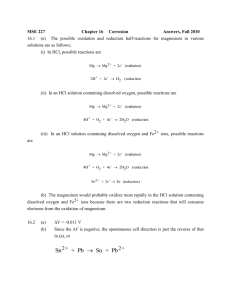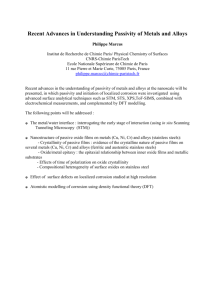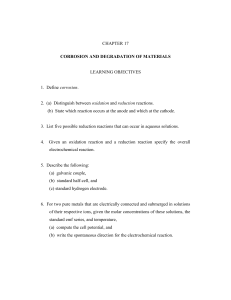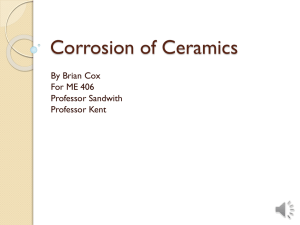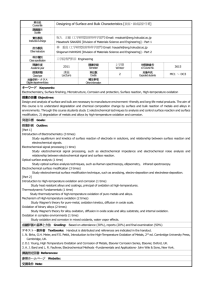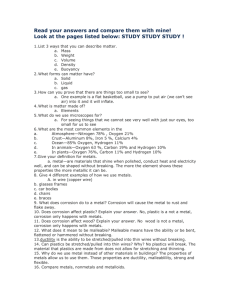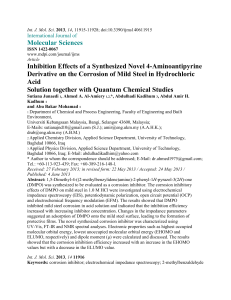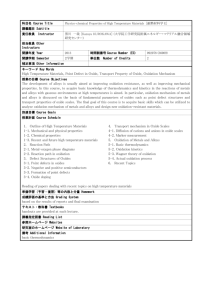i Introduction - High Temperature Oxidation of Metals
advertisement
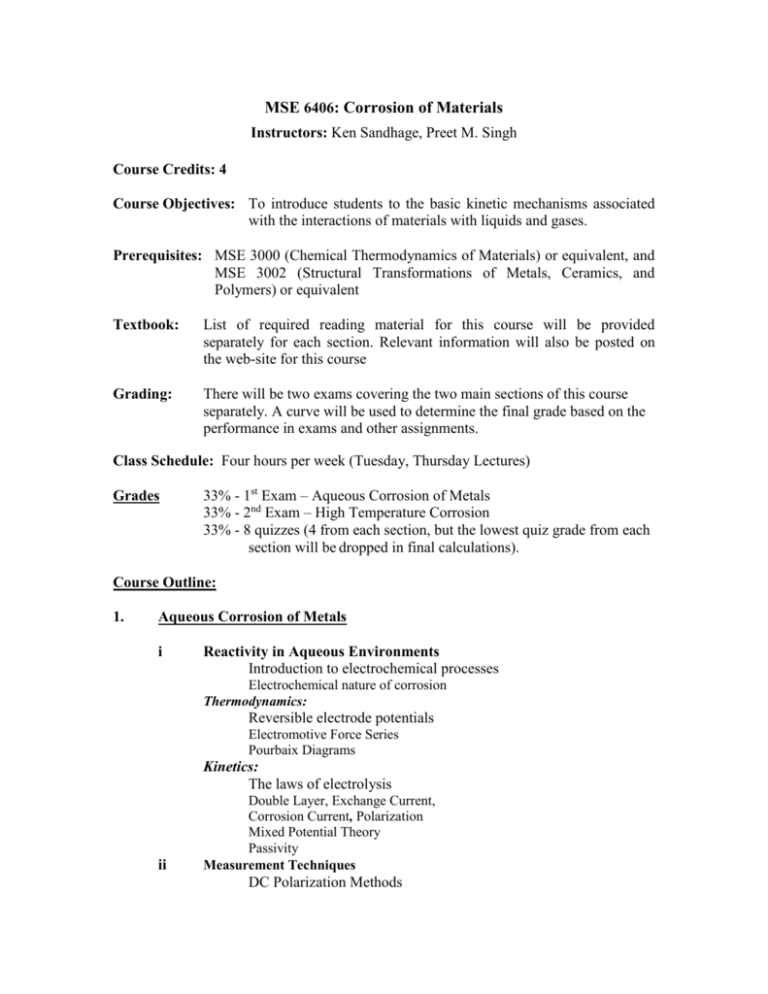
MSE 6406: Corrosion of Materials Instructors: Ken Sandhage, Preet M. Singh Course Credits: 4 Course Objectives: To introduce students to the basic kinetic mechanisms associated with the interactions of materials with liquids and gases. Prerequisites: MSE 3000 (Chemical Thermodynamics of Materials) or equivalent, and MSE 3002 (Structural Transformations of Metals, Ceramics, and Polymers) or equivalent Textbook: List of required reading material for this course will be provided separately for each section. Relevant information will also be posted on the web-site for this course Grading: There will be two exams covering the two main sections of this course separately. A curve will be used to determine the final grade based on the performance in exams and other assignments. Class Schedule: Four hours per week (Tuesday, Thursday Lectures) Grades 33% - 1st Exam – Aqueous Corrosion of Metals 33% - 2nd Exam – High Temperature Corrosion 33% - 8 quizzes (4 from each section, but the lowest quiz grade from each section will be dropped in final calculations). Course Outline: 1. Aqueous Corrosion of Metals i Reactivity in Aqueous Environments Introduction to electrochemical processes Electrochemical nature of corrosion Thermodynamics: Reversible electrode potentials Electromotive Force Series Pourbaix Diagrams Kinetics: The laws of electrolysis ii Double Layer, Exchange Current, Corrosion Current, Polarization Mixed Potential Theory Passivity Measurement Techniques DC Polarization Methods iii iv 2. Electrochemical Noise AC Impedance Method Types of Corrosion Galvanic Corrosion, Pitting, Crevice Corrosion, Dealloying, Environment Induced Cracking Other Related Applications: Metal Extraction Processes Electroplating, Electropolishing and Electromaching Primary and secondary batteries Fuel cells High Temperature Corrosion of Materials i ii iii iv v vi Introduction - High Temperature Oxidation of Metals Thermodynamics of Oxidation Point Defect Equilibria Measurements of Kinetics/Oxidation Rate Laws External Oxidation of Metals and Alloys Parabolic Scaling of Pure Metals Short Circuit Diffusion through Scales Oxidation of Oxygen Soluble Metals Oxidation with Multiple Oxide Scales Phase Boundary Controlled Oxidation Stability of Planar Interfaces and Displacement Reactions Selective Planar Oxidation of Metal Alloys Internal Oxidation of Metal Alloys Congruent/Direct Dissolution of Metals and Ceramics Molecular Diffusion Dissolution Free Convection Dissolution Forced Convection Dissolution Incongruent/Indirect Dissolution of Metals and Ceramics Schedule: Weeks 1 to 7.5 Dates TBD 7.5 to 15 TBD Topics Covered Aqueous Corrosion of Metals 1st Exam (Aqueous Corrosion of Metals) High Temperature Corrosion of Materials 2nd Exam (High Temperature Corrosion of Materials)
